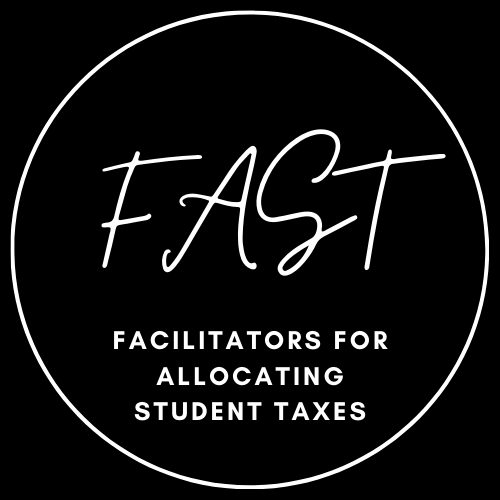FAST is here to help RSOs find funding for their events and programming, even if it is not from the Student Activities Tax. Look at the list below, we can help you reach out to these offices and submit a budget request.
CLiA
Limited funding is available for programs & projects that fit with the mission of CLiA, which is to cultivate and sustain experiential learning opportunities, curricular & non-curricular, in the service of the teaching goals of Williams faculty, the civic aspirations of our students and the needs of the wider community
Chaplain’s Office
Funding is available for events and projects that are open to the entire College community – or intended for a particular segment of the community in a way that is inclusive; the project or event is designed or intended to further the values of healthy spiritual, religious or ethical life; to increase awareness of particular ethical or social concerns; to celebrate the gifts of a particular community to the wider community or society; to speak to a need that has not been addressed adequately elsewhere in college programming; to speak or enact a prophetic word about injustice, oppression or intolerance; and the project or event is thoughtfully planned with appropriate attention to such matters as leadership, advertising, follow-up, and responsible use of and accountability for resources.
Committee for Undergraduate Life
The Committee on Student Life (CUL) funds events that bring students and faculty together. The CUL funds events; it does not fund organizations or groups. However, organizations or groups planning an event may request CUL funding for the event. It typically has about $3,000 available each year.
Davis Center
The Davis Center funds programs and events that are aligned with the center’s mission to support the personal and intellectual growth of the Williams community through education, advocacy, and support for historically underrepresented communities.
Priority will be given to proposals/projects that are intersectional in focus or approach. The center acknowledges that there are various interpretations of intersectionality, but primarily recognizes intersectionality as a way of understanding and analyzing the complexity of the world and distributions of power with specific attention to how people’s lives are shaped by multiple axes of identity that overlap, including but not limited to race, gender, and class.
The Dively Committee
The purpose of the Dively Committee is to develop an understanding of human sexuality and sexual orientation and their impact on culture. The focus of the Committee is on a broad array of programming that explores issues relating to gender difference, sexuality, homosexuality, and feminism, and that encourages a respect for and awareness of human sexuality and diversity. Funds are made available for lectures, workshops, and other events that address these issues, especially those of specific concern to members of the queer community.
Minority Coalition
MinCo groups have their own separate funding process in addition to being eligible for CC funding.
VP for Campus Life
Funds provided by the Office of the Vice President for Campus Life can be used for a wide range of on campus activities. These funds come from a series of endowments based on strengthening and enhancing life in residential and other campus communities for students. There is no typical example of the manner in which these funds are used, however they are meant to primarily focus on events and activities for students. If you have specific questions about how your event or activity might fit within the parameters for the Vice President for Campus Life funds, please contact Susan Gaskell to make and appointment to speak with someone in the office.
Zilkha Center
The Zilkha Center for Environmental Initiatives will consider funding initiatives that support the college’s efforts to educate its community about sustainability and environmental issues or the college’s goals to reduce greenhouse gas emissions and to implement and promote sustainable practices. The Zilkha Center, founded in 2007, works with students, faculty, and staff to incorporate principles of sustainability into the fabric of student life — in learning, in our purchasing and operations, in capital projects, and in the daily routines of us all. It leads the development and management of a strategic plan for sustainability that includes energy management and greenhouse gas emissions reductions, sustainable food, waste management, environment-friendly development and purchasing, and student involvement and education. This work complements the already strong academic programs of our longstanding Center for Environmental Studies.
